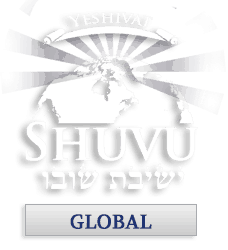וְלָֽקַחְתָּ֞ מֵֽרֵאשִׁ֣ית | כָּל־פְּרִ֣י הָֽאֲדָמָ֗ה אֲשֶׁ֨ר תָּבִ֧יא מֵֽאַרְצְךָ֛ אֲשֶׁ֨ר יְהֹוָ֧ה אֱלֹהֶ֛יךָ נֹתֵ֥ן לָ֖ךְ וְשַׂמְתָּ֣ בַטֶּ֑נֶא וְהָֽלַכְתָּ֙ אֶל־הַמָּק֔וֹם אֲשֶׁ֤ר יִבְחַר֙ יְהֹוָ֣ה אֱלֹהֶ֔יךָ לְשַׁכֵּ֥ן שְׁמ֖וֹ שָֽׁם: וּבָאתָ֙ אֶל־הַכֹּהֵ֔ן אֲשֶׁ֥ר יִֽהְיֶ֖ה בַּיָּמִ֣ים הָהֵ֑ם וְאָֽמַרְתָּ֣ אֵלָ֗יו הִגַּ֤דְתִּי הַיּוֹם֙ לַֽיהֹוָ֣ה אֱלֹהֶ֔יךָ כִּי־בָ֨אתִי֙ אֶל־הָאָ֔רֶץ אֲשֶׁ֨ר נִשְׁבַּ֧ע יְהֹוָ֛ה לַֽאֲבֹתֵ֖ינוּ לָ֥תֶת לָֽנוּ:
that you shall take of the first of all the fruit of the ground, which you will bring from your land, which the Lord, your God, is giving you. And you shall put [them] into a basket and go to the place which the Lord, your God, will choose to have His Name dwell there. And you shall come to the kohen who will be [serving] in those days, and say to him, “I declare this day to the Lord, your God, that I have come to the land which the Lord swore to our forefathers to give us.”
Devarim 26:2-3
This week’s Torah portion begins with a description of the Bikurim offering. According to Leviticus 23:17, the Bikurim offering begins every year on Shavuot. The Bikurim, or firstfruits, are placed in a basket and brought to the Temple, to the Kohayn on duty. The offeror then recites a litany from Deuteronomy 26 that recaps the history of the children of Israel. Before coming into the land of the promise. The recitation ends and the firstfruits are given to the Kohayn for his consumption. Once the offeror has presented the Bikurim offering, his crops are eligible to be eaten and used. Nothing is allowed to be consumed before the Bikurim offering.
There is a great misconception about “firstfruits” occurring during Pesach. The Omer, or sheaf offering, is brought from the 2nd day of matzah until Shavuot. This offering is very different from the Bikurim offering. For the sheaf offering, a sheaf of grain, one for the entire nation of Israel, is brought to the Kohayn, who brings it up on the altar and waves it. There is no basket, there is no litany, it is grain and not any other fruit, it is simply a very different offering.
The Bikurim offering came from every farm and field near enough to Jerusalem in that the fruits would not spoil during the trip. Every village brought their Bikurim to the Temple together with great celebration and fanfare. Parades from farming towns all over Israel would arrive in Jerusalem with music, drums, and dancing to bring the Bikurim to the Temple. The Bikurim was one of the most joyous offerings in the Temple. Shabbat shalom.
